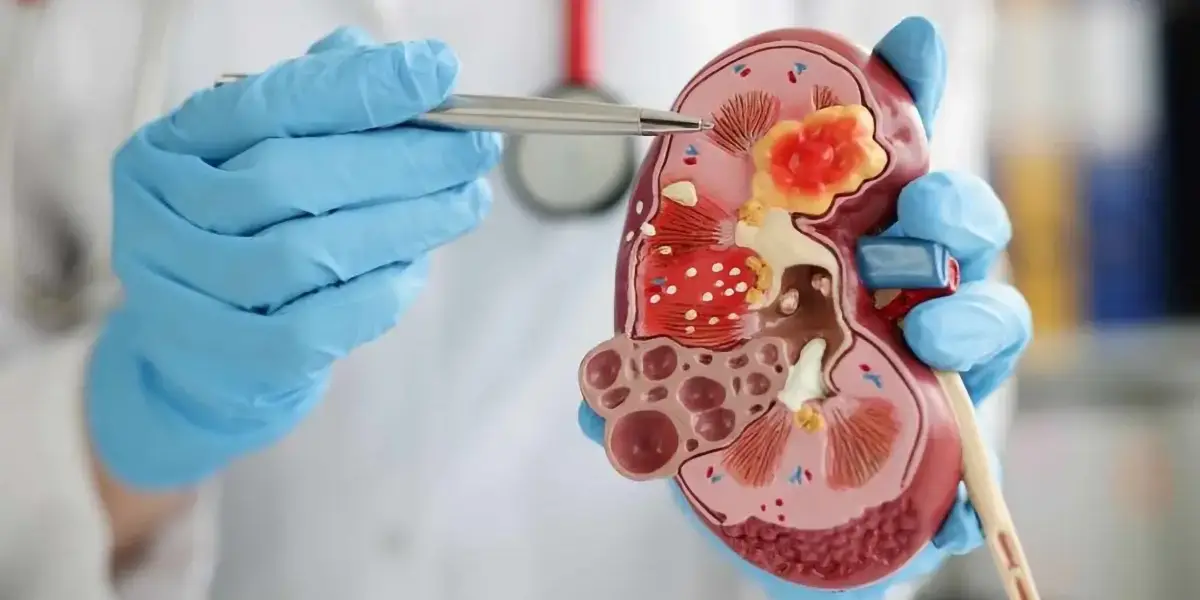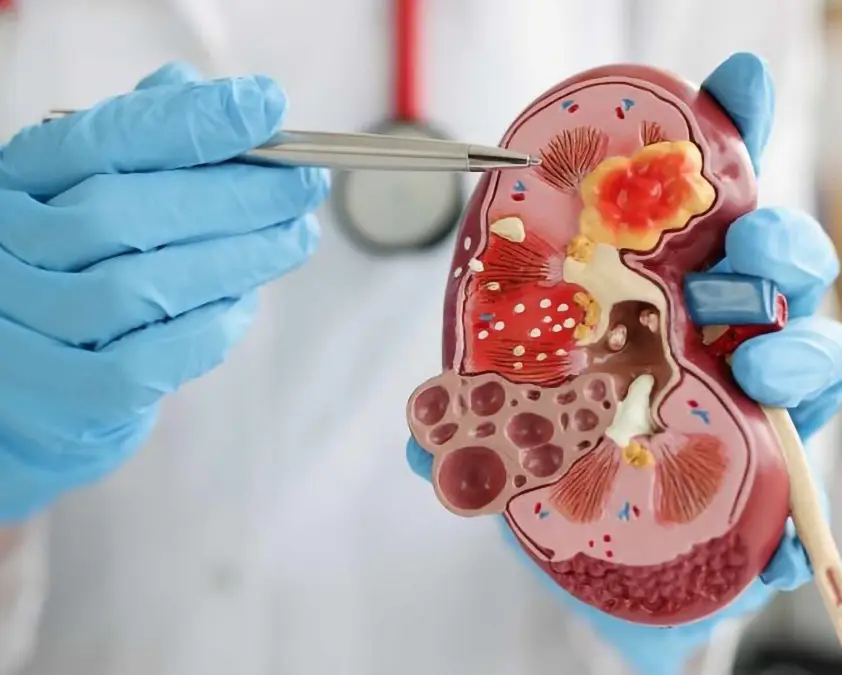NEPHROLOGY
When should you see a nephrologist?
- Lower back pain (pulling, sharp, or aching);
- Frequent urination or urinary retention;
- Changes in urine color, odor, or volume;
- Swelling of the face, hands, or legs (especially in the morning);
- High blood pressure;
- General weakness or fatigue.
What conditions does a nephrologist treat?
- Pyelonephritis (kidney inflammation);
- Glomerulonephritis (autoimmune kidney damage);
- Kidney stones;
- Polycystic kidney disease;
- Kidney failure;
- Urinary tract infections.
Diagnostic methods
For an accurate diagnosis, a nephrologist may order:
- Urine and blood tests (general, biochemical, Reberg test);
- Kidney ultrasound;
- CT or MRI (if indicated);
- Kidney biopsy (in complex cases).
How are kidney diseases treated?
Treatment depends on the diagnosis:
- Antibacterial and anti-inflammatory therapy;
- Diet (limiting salt and protein);
- Management of hypertension and swelling;
- In severe cases – hemodialysis or transplantation.
Important! Kidney diseases often develop unnoticed, so don’t ignore alarming symptoms. If you’re at risk (hypertension, diabetes, hereditary conditions), undergo regular nephrology check-ups!





